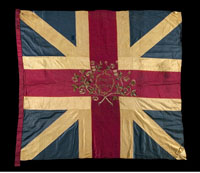Charles Townshend (1725-1767)

Charles Townshend (1725-1767), the second son of the Charles, 3rd Viscount Townshend, and his wife Ethelreda Harrison, is best known for the American Revenue Act of 1767 that bears his name as the "Townshend duties."
Educated at Lincoln's Inn; Clare College, Cambridge; and at Leiden University, he was first elected to Parliament in 1747 at age twenty-two. Because of his family's closeness with the then first minister, Henry Pelham, and his brother, the Duke of Newcastle, he was appointed to the Board of Trade and Plantations in 1749, where he gained considerable familiarity with American affairs. He remained at the Board for 5 years, then was appointed to a series of offices, including Secretary at War (from 1761 to 1762) and, for seven weeks in 1763, President of the Board of Trade. His main contribution to colonial affairs during his brief tenure at the head of the Board addressed one of his mounting concerns with American affairs: how to pay for a standing army in the colonies and cut down on smuggling to avoid payment of existing duties. He therefore introduced a bill in March 1763 to convert the duty required by the 1733 Molasses Act into an American revenue measure. It failed but the idea was resurrected in 1764 in what became known as the Sugar Act, which enraged New England interests but little concerned leaders in the other colonies.
Personal and family conflicts with the King and Lord Bute kept him out of office between 1763 and 1765, but they did not keep him out of politics. He entered into a soft opposition to the Grenville administration and wrote pamphlets on American affairs. In 1765, however, he resoundingly supported the government with a famous speech in support of Grenville's Stamp Act and warmly debated Isaac Barré over it (during which Barré called Americans the "sons of liberty"). Townshend was convinced that American strength and prosperity was due entirely to support and protection paid for by the British people and the time had come for Americans to contribute to those costs. He was rewarded with the lucrative office of paymaster-general but failed to vocally promote repeal of the Stamp Act in 1766, although he voted for it and supported the Declaratory Act.
Townshend became Chancellor of the Exchequer in the new ministry of William Pitt (who was elevated to Earl of Chatham) and used his position to address revenue problems with both India and America. During subsequent debates over the East India Company he gave his infamous "champagne speech" (so called because he was likely inebriated at the time). For observers such as the keen Horace Walpole, the speech "was at once a proof that his abilities were superior to all men, and his judgement below that of any man."
Drunken speeches aside, Townshend will forever be remembered for his plan to tax the American colonies, which became known as the Townshend duties. He did not invent the principle of parliamentary authority to impose taxes on the colonies, which was long accepted on both sides of the Atlantic by adherents to the traditional view of the British constitution and parliamentary sovereignty. Townshend did exploit the colonial distinction, drawn most notably by Benjamin Franklin and John Dickinson, between external and internal taxes. His plan focused on ostensibly acceptable import duties on British china, glass, paper, pasteboard, lead, paint, and tea with a design not to pay for the army there but to free colonial governments from reliance on provincial assemblies for support. It also created a Board of Customs Commissioners, based in Boston, to enforce them. His opponents correctly pointed out that the money raised by the plan would have been quite small, estimated at no more than £40,000, and, moreover, not all of the American governments depended on the whims of colonial legislators (Virginia's government, for example, was directly financed by a provincial tax). Townshend intended his proposal as a beginning, however, to be built upon once the point of taxation had been achieved. With Chatham almost entirely absent from Cabinet meetings and Parliament because of ill health, Townshend swept the measure through both Commons and Lords without opposition in June 1767.
In many ways, Charles Townshend put into motion the train of events that led to the War for Independence, but he did not live to experience the vehement American reaction to his duties. He died unexpectedly, at 42 years old, on September 4, 1767, of a "putrid fever."







